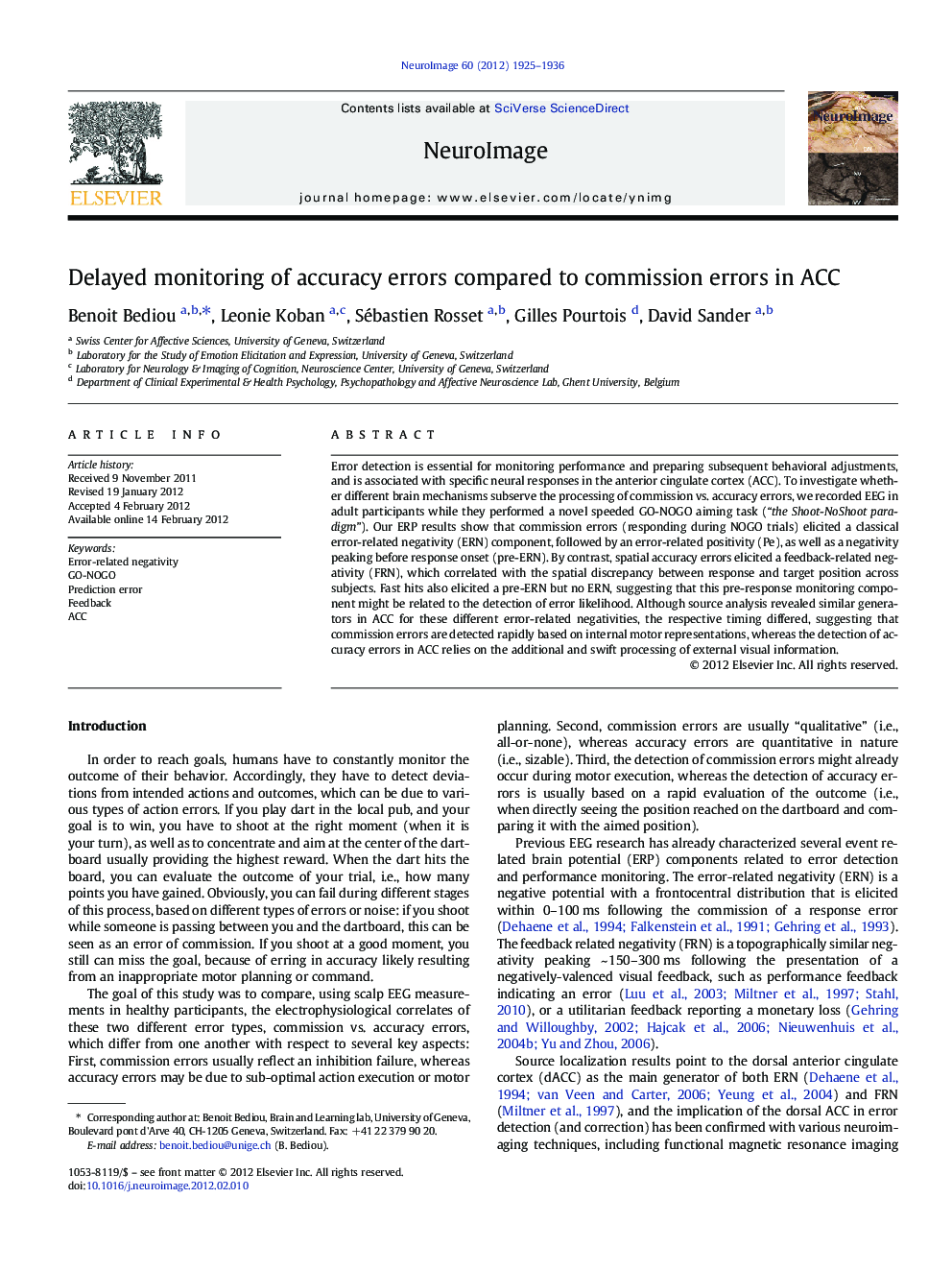| Article ID | Journal | Published Year | Pages | File Type |
|---|---|---|---|---|
| 3072036 | NeuroImage | 2012 | 12 Pages |
Error detection is essential for monitoring performance and preparing subsequent behavioral adjustments, and is associated with specific neural responses in the anterior cingulate cortex (ACC). To investigate whether different brain mechanisms subserve the processing of commission vs. accuracy errors, we recorded EEG in adult participants while they performed a novel speeded GO-NOGO aiming task (“the Shoot-NoShoot paradigm”). Our ERP results show that commission errors (responding during NOGO trials) elicited a classical error-related negativity (ERN) component, followed by an error-related positivity (Pe), as well as a negativity peaking before response onset (pre-ERN). By contrast, spatial accuracy errors elicited a feedback-related negativity (FRN), which correlated with the spatial discrepancy between response and target position across subjects. Fast hits also elicited a pre-ERN but no ERN, suggesting that this pre-response monitoring component might be related to the detection of error likelihood. Although source analysis revealed similar generators in ACC for these different error-related negativities, the respective timing differed, suggesting that commission errors are detected rapidly based on internal motor representations, whereas the detection of accuracy errors in ACC relies on the additional and swift processing of external visual information.
► First EEG study on error monitoring in a videogame-like shooting task. ► Commission error: pre-error speeding; Accuracy error: post-error slowing. ► Commission error: pre-ERN (error likelihood) and ERN (error commission). ► Accuracy errors: FRN related to error magnitude across subjects. ► ACC computes prediction errors at distinct stages of action monitoring.
